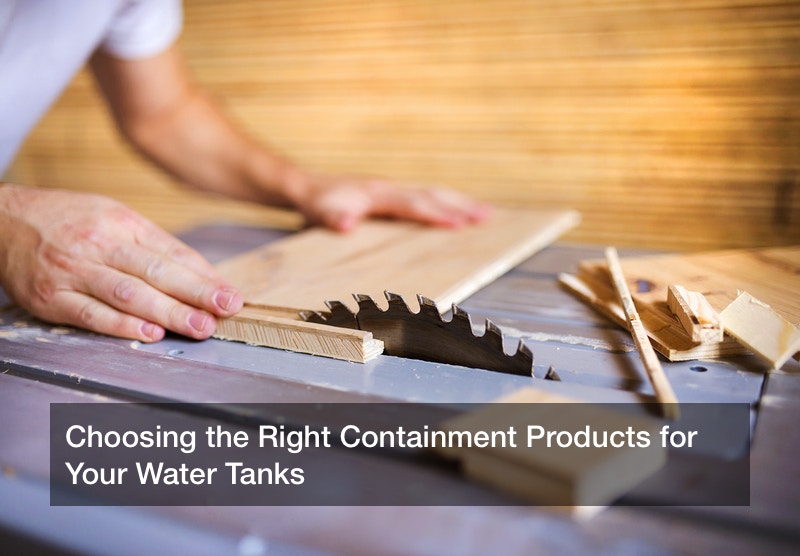
When it comes to water safety for human consumption, households with water tanks are required by law to add a protective coating or tank liners for water systems. Failure to this, you risk contaminating your water as well as attract hefty fines for breaching the law safe water containment measures. Tank liners, however, are not only meant to keep water safe to drink; but offer a number of advantages for your household and the service life of your tank.
Portable water tank lining improves the durability and integrity of your storage facility to extend the service life of your tanks in return.
Benefits of Water Storage Tank Liners
Excellent Impermeability
The key feature and benefit of a tank liner is its ability to prevent micro-leaks that could be costly in damages. In addition to preventing water from leaking out, the liners also offer a sound barrier to keep bacteria and other water contaminants from getting into the water. For households, this is particularly important due to the risk of contracting water-borne diseases. Both household and industrial water tanks can take advantage of custom linings to ensure reliable, safe service.
Superior Weather Resistance
Tanks are designed for different applications, and effective lining products can ensure your tank is fit for any environment, regardless of stored liquid, soil quality and weather. When choosing tank liners it’s important to consider the immediate factors affecting your tank. For instance, you’d want to avoid UV sensitive liners because they disintegrate easily, leaching harmful cancer-causing chemicals and materials into the water.
The linings create a new barrier that protects the stored liquids –water and industrial liquids, from coming into contact with the tank material which could be of stainless steel or concrete. This protects the structure from corrosion thus increased integrity.
Durability, Flexible, and Easy to Manage
Potable water tank lining products are subjected to NSF-61 certification requirements that require storage tanks for potable water to be inspected. This is meant to ensure the products are UV resistance without using plasticizers that are known to be harmful for human consumption.
Tanks liners are effective in maintaining impermeability by protecting against regular wear and tear, but more superior liners like those made from polyethylene and polypropylene can offer maximum durability without adding several layers of coatings. Additionally, tanks liners allow easier maintenance because repairs can be done onsite reducing service interruptions during repairs.
Tank Lining Materials
Tank liners come in different materials and here are the main ones you should know when choosing a containment product for your application.
- Polyvinyl chloride is a common material used to make tank liners and has excellent resistance to corrosion, making it an ideal choice for lining chemical tanks. PVC also protect against product contamination.
- Polyurethane This is a unique type of tank liner and it’s available in gel-form for more flexibility on chemical storage tanks. If you’re looking for concrete water tank liners, liners made of polyurethane offer the best option due to its abrasion resistance.
- Epoxy Chemically, epoxy resin offer excellent resistant and when cured, it provides superior temperature resistance.
- Zinc liners Metal tanks are easily corroded but a coat of zinc silicate provides essential galvanizing properties to protect against corrosion and contamination.
- Cementitious liners are made from the modification of acrylic polymers. This product is widely used to waterproof large concrete water tanks for safe, reliable water.
Water is vital for human survival as well as manufacturing purposes, and it’s important that households have clean and safe water stored in a secure containment. Choosing the right tank liner product can ensure the integrity and durability of your tank, improving its serviceability.
